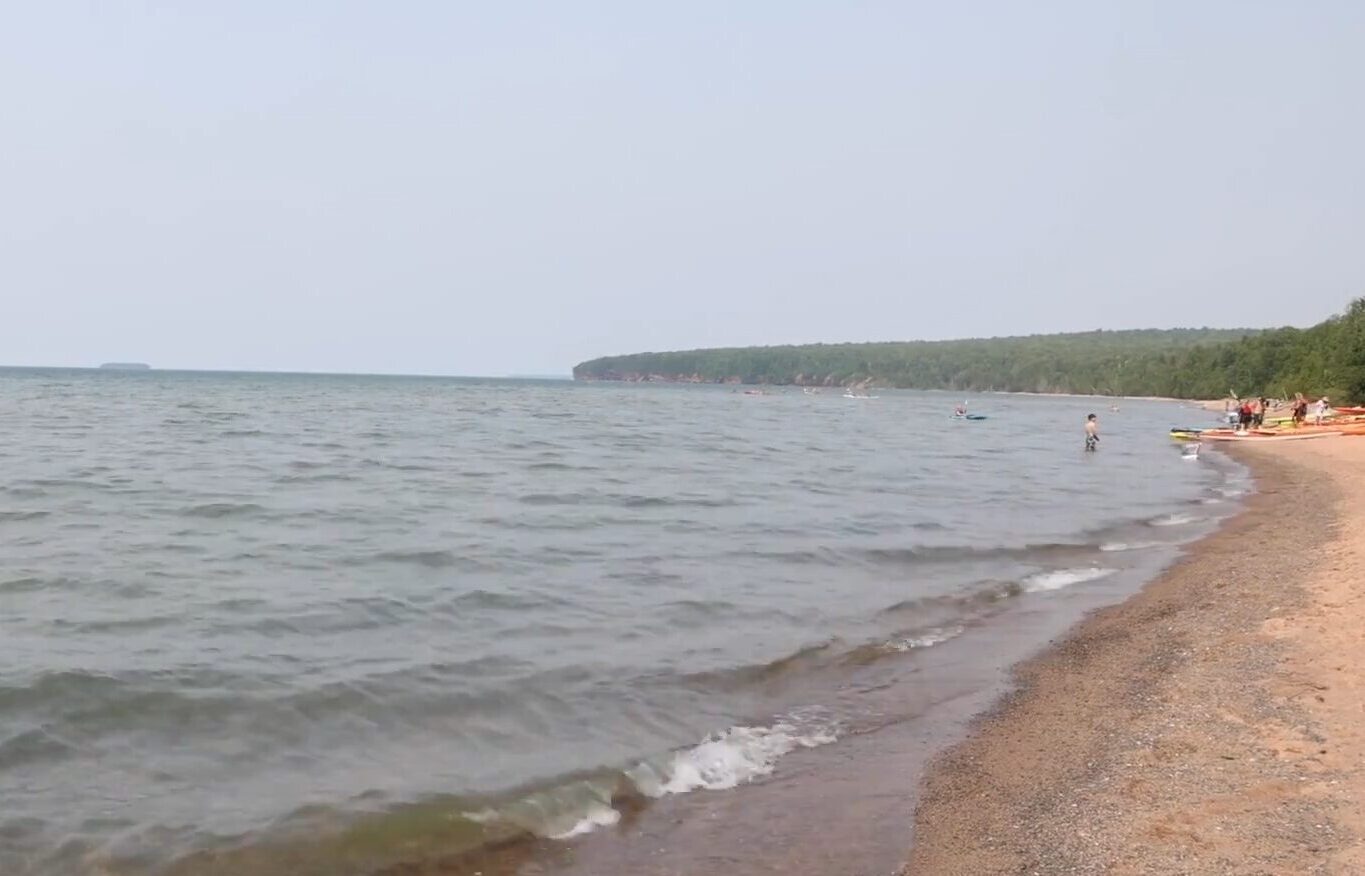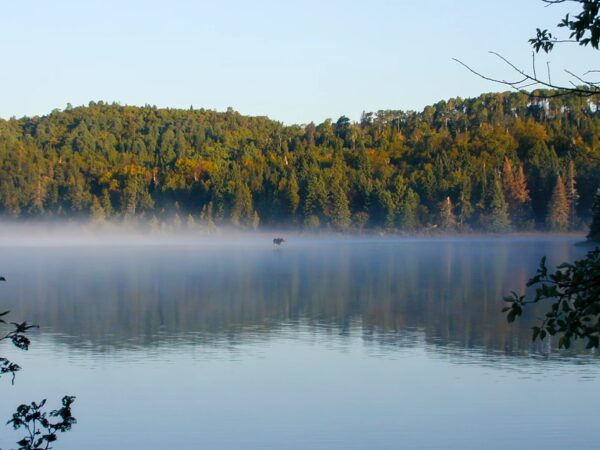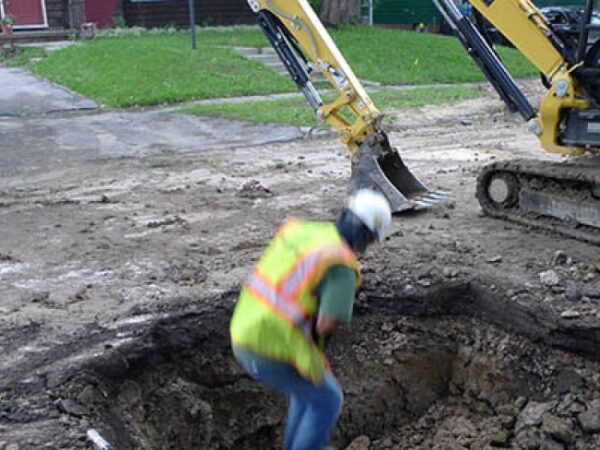
“Lake Michigan coming to Idaho.”
That’s a potential solution to Idaho’s drought conditions suggested by a Twin Falls radio commentator in June. He said Idaho’s current drought is in its second year and cited a previous drought in the not-too-distant past that lasted seven years. The commentator went on to talk about pipelines of Great Lakes water heading west and their feasibility.
While this incident is a more recent example of it, that’s not new thinking when it comes to the desire to tap the Great Lakes.
Perhaps the best example came in 2007 when New Mexico Gov. Bill Richardson speculated about the Great Lakes as a national resource and famously said, “Wisconsin is awash in water.” At the time Richardson, a Democrat, was a viable presidential candidate and proposed a national water policy where water-rich states would help the southwest.
Richardson’s presidential campaign stalled and with it his water plans. Advocates for passage of the then-nascent Great Lakes Compact, which was designed to prevent diversions, used Richardson’s words as a rallying cry.
But the Idaho commentator went beyond just speculating about tapping the Great Lakes with a pipeline and pointed out an ongoing trend with potential political ramifications: the ongoing westward population shift.
Population growth in the west and southwest continues in spite of the drought, Axios recently reported, citing NASA projections.
The Great Lakes Compact’s agreement to prevent diversions is a federal law, and laws can be changed. The Idaho commentator claimed that western states already have disproportionate power given the U.S. Senate’s design where each state has two seats regardless of population.
And the west is likely to gain influence in the House as the population continues to shift west. Based on the 2020 census, Great Lakes states will lose five congressional seats.
Not on the agenda
Responsibility for the Great Lakes Compact rests with the governors of the eight Great Lakes states who meet via their umbrella group, the Great Lakes St. Lawrence Governors and Premiers, for their biennial Leadership Summit in Cleveland in September.
The agenda includes Ohio’s efforts to improve water quality, water infrastructure and aquatic invasive species. Not on the agenda is any mention of an update of the now 13-year-old Compact or how to deal with the potential long-term threat of drought in the west.
Pete Johnson is the group’s deputy director. He told Great Lakes Now that any long-term threat from drought would first be addressed by representatives from the governors of each Great Lakes state.
Without mentioning a future diversion threat from western drought, Johnson said “we just completed a comprehensive set of updates on the decision-making procedures for proposed near-basin diversions. Long-distance and large-scale diversions continue to be banned under the Compact as a matter of state and federal law.”
The Compact was designed, Johnson said, to provide long-term protections against diversions.
Michigan Gov. Gretchen Whitmer’s office did not respond to Great Lakes Now’s questions, instead referring them to the Michigan Department of Environment, Great Lakes, and Energy.
Historically, governors have looked to the Michigan governor for leadership on protecting the Great Lakes, even if the Michigan governor isn’t in a formal leadership position. Former Gov. Rick Snyder revived regular meetings of the governors after they had been dormant for eight years. Under his administration, the Michigan Department of Environmental Quality regularly provided technical and policy expertise during the protracted hearings on the Waukesha water diversion.
Whitmer embraced that role at the 2019 governors summit in Milwaukee when she told Great Lakes Now that “absolutely, Michigan has to lead on Great Lakes issues.”
EGLE Deputy Director James Clift did not address the diversion threat from western drought but said “the consensus among the states is that no changes are necessary at this time but we continue to monitor the challenges presented by climate change and engage with interested parties on how to cope with the changing natural world.”
On updating the Compact, Clift said it’s still a relatively young document and that decisions made on diversion proposals over the past years have allowed states to apply the language of the Compact to real situations, which will help solidify its role over time.
Water policy experts: Plan now
Policy experts say the time is now for governors to plan for potential diversion threats, even if they’re not imminent.
“The health of the lakes should always be viewed through a telescope looking into the future by hundreds of years and thousands of years, not just on a month-to-month or year-to-year basis like a bad rental agreement,” Chicago’s Cameron Davis told Great Lakes Now.
“So yes, we should be thinking about threats to the Great Lakes beyond the latest drought or wildfire,” Davis said.
Davis is a commissioner with Chicago’s Metropolitan Water Reclamation District and previously a senior adviser for Great Lakes issues in the U.S. EPA under President Barack Obama.
Davis recently sponsored a water rights and conservation resolution that was adopted by MWRD that included a statement affirming that the “water of the Great Lakes… shall remain in the public trust for the people of the Great Lakes region.”
Davis said the resolution was driven by “public concerns” he has received about the potential of monetizing Lake Michigan as a commodity.
Traverse City-based Great Lakes author Dave Dempsey acknowledges that it’s hard to be forward looking given the turbulence of the times but said “we know that access to water is a major issue in the west and southwest and will only grow in importance. Long-range diversions are economically unfeasible right now, but water’s value and pricing will only grow.”
Dempsey, a policy adviser to the non-profit For Love of Water, authored Great Lakes for Sale in 2009 and is finalizing an updated version for release in late 2021.
To illustrate the point, Dempsey pointed to the 2019 Minnesota water train proposal that, if approved, would have allowed for shipment of 500 million gallons of water a year to Colorado. The request by a Colorado company was denied but it “suggests an economically viable way that diversions could happen,” Dempsey said.
The U.S. government recently declared the first-ever shortage for the Colorado River, which supplies much of the water to the west. Arizona will be the first state impacted, but it is expected usage cuts will eventually be expanded.
Davis and Dempsey also cited diversions that have been approved in Wisconsin as a threat to the Compact and could lead to opening the door to out-of-region diversions.
“Our more immediate threat is from outside the Great Lakes drainage basin but still within the Great Lakes states and provinces. If the economics shift to make diversions within our states and provinces more attractive, we will be unlocking the door for extra-regional diversions,” Davis said.
Dempsey agreed.
“Wisconsin apparently sees diversions as an economic development strategy for the southeast part of the state. Other Great Lakes states will undoubtedly follow Wisconsin’s lead,” Dempsey said.
Great Lakes governors are “wrong” if they think the Compact has solved the diversion and commodification of water issues, Dempsey said.
“Vigorous oversight of implementation and a lookout for potential long-term threats are critical. But politicians don’t think in the long-term, they think in next-election terms,” Dempsey said.
Davis called on Great Lakes governors to act now. “It’s time for the (Great Lakes) governors to be looking at Compact version 2.0,” he said.
A long-standing threat to the credibility of the Compact is a provision that allows for shipment of water outside the Great Lakes basin as long as it is in containers that carry less than 5.7 gallons, which is essentially bottled water.
A Wisconsin company near the coast of Lake Superior recently announced plans to open a water bottling facility. The plan was met with protest from local citizens and an initial request for a permit was denied. The company is contesting the decision.
The water conservation group Clean Water Action reacted strongly to the new bottled water venture.
“Great Lakes basin waters should not be put in fossil fuel plastic and sold off for profit,” the group said in a statement on Twitter.
Emphasizing that water is not a commodity, Clean Water Action stated that “we need a stronger Compact and we need to close the bottled water loophole.”
Michigan, under governors from both political parties, has consistently supported Nestle’s (now Blue Triton) bids for water withdrawal despite overwhelming public sentiment against it.
Senior executives under former Gov. Rick Snyder and Gov. Gretchen Whitmer justified decisions allowing Nestle to take water, saying they were required to follow the applicable laws.
After a 2018 decision in favor of Nestle by the Michigan Department of Environmental Quality, Lisa Wozniak said the decision is like “hanging a ‘For Sale’ sign on Michigan’s abundant water resources.” Wozniak is executive director of the Michigan League of Conservation Voters.
Ethical obligations to share water
As the threat of water shortages grows, humanitarian needs could prompt requests for Great Lakes water.
How do you say no to sharing when you are home to a wealth of water and another region is suffering?
But Canada’s Maude Barlow has little sympathy for an area like California that has “abused its water for decades” or British Columbia which “promotes bottling its water for export to the Far East,” Barlow said.
Barlow is a former adviser to the United Nations and is world-renowned for being a champion of water as a human right.
It’s best that the Great Lakes region protect and restore the Great Lakes basin instead of shipping water to far off locations, according to Barlow.
“There would be deep resentment at seeing precious Great Lakes water diverted to areas that have not taken care of their water,” Barlow said.
Chicago’s Cameron Davis acknowledged the ethical question of sharing water with needy areas and called for a water ethic.
“If Aldo Leopold can call for a ‘land ethic,’ then our time is now to demand a ‘water ethic,’ to live within our means,” Davis said.
Davis said people in water-needy areas could come to the Great Lakes region, but they shouldn’t expect the region to ship water to them.
Traverse City’s Dempsey said the region should expect humanitarian disasters where temporary access to fresh water is warranted and the Great Lakes Compact has a provision to allow for those diversions.
But he also cautioned that the Great Lakes governors haven’t defined what a crisis would look like that would warrant a diversion.
“It’s better to do that now,” Dempsey said, “before the crisis comes.”
Catch more news on Great Lakes Now:
Great Lakes Water Diversions Could Be More Numerous
Lake Michigan Water Pipeline: Waukesha receives federal loan for water supply project
Nestlé Exit: North American bottled water brands sold to investment firm
API key not valid. Please pass a valid API key.Featured image: Lake Superior shore off Meyers Beach in Apostle Islands National Lakeshore (Great Lakes Now Episode 1027)
5 Comments
-
Waukesha WI broke the Great Lakes Compact. It could not substantiate that it was, or still is without a source of water. The primary water supply since the 1930’s, thought tainted with treatable Radium, has trended upward since the year 2000. The most recent live data continues to show that year after year the level has continued to trend upward, this despite regional population growth also year after year. The current level, independently monitored by a joint program with UWM and the USGS shows that the level has recovered higher than in 1973. Only 2 other recorded levels are documented, one in the 1940’s and the other in the 1930’s. Waukesha County developers are the winners in getting the city of Waukesha off the deep aquifer. Now the wealthiest communities have the aquifer to themselves in our region.
If Wisconsin and Waukesha have become the first to divert water out of the Great Lakes Basin under deceitful circumstances, there will be a diversion to the Southwest.
The proof is at the USGS website, Groundwater Watch. -
The natives own the lakes not the USA or the dominan of Canada
-
The Western US was not created to sustain so many people and they have abused water for years. Residents of the Great Lakes states, pay much higher taxes and endure harsh winters with a huge benefit being access to fresh water. I am not a strongly political person but I will become one if the West tries to tap into the Great Lakes.
-
74% of AZ’s water is used for agriculture, I.e. growing food for people that live in areas with substandard growing seasons. Pay more taxes?
-
Cattle and calves and dairy are leading Arizona ag products, with cotton, lettuce and hay positioned as top-produced crops. Additionally, citrus is a vital economic force, and the Grand Canyon State ranks second in the nation for cantaloupe, honeydew melons and lemon production.
What do you think we already don’t produce here around the lakes?Lemons, that’s right..!!!
Get your water from somewhere else!!!
-
-




